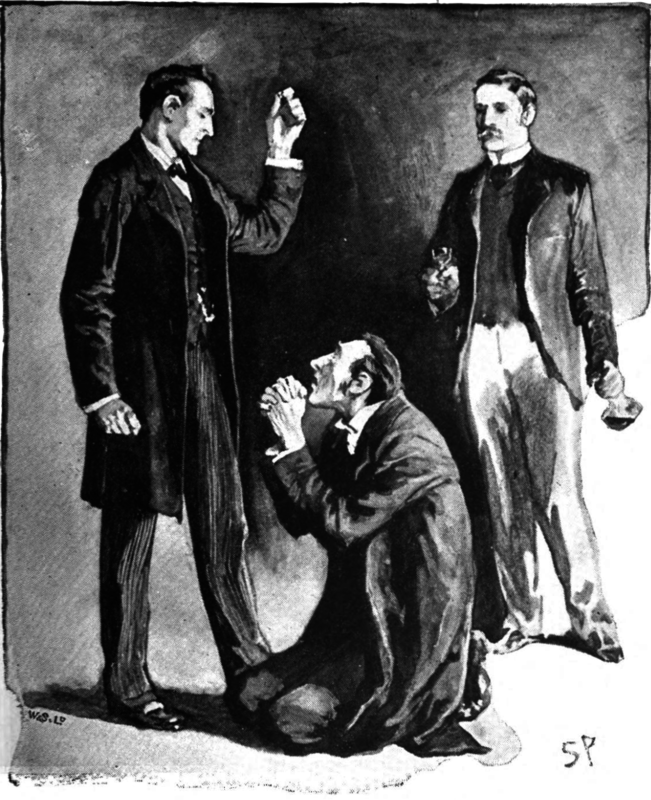Supporting Nursing Students Through FlexPath Tutors and Academic Writing Resources
5
0
·
2025/08/06
·
5 mins read
☕
WriterShelf™ is a unique multiple pen name blogging and forum platform. Protect relationships and your privacy. Take your writing in new directions. ** Join WriterShelf**
WriterShelf™ is an open writing platform. The views, information and opinions in this article are those of the author.
Article info
Total: 1237 words
Like
or Dislike
More to explore










Capella FlexPath tutors play a crucial role in helping students succeed in Capella University's self-paced degree format. The FlexPath model offers learners the ability to progress through coursework at their own pace, but with that flexibility comes the challenge of self-discipline and self-direction. Tutors familiar with this model help bridge that gap by offering individualized academic support, keeping learners focused and on track.
These tutors assist students by breaking down complex assessment prompts, explaining grading rubrics, and guiding them on how to meet the required competencies. With no set deadlines in FlexPath, it’s easy to fall behind or feel unsure about how to approach assignments. Tutors provide clarity, direction, and motivation, ensuring that learners not only stay engaged but also understand the depth of each topic they're tackling.
Another advantage of working with a capella flexpath tutor is the ability to receive tailored feedback throughout the academic journey. Whether it's a course in leadership, quality improvement, or informatics, tutors can help students navigate subject-specific challenges while reinforcing proper research and writing skills. This support is not just about completing tasks—it's about helping students become more confident and independent in their thinking and execution.
For students juggling work, family, or other commitments, a tutor can also serve as a source of accountability and encouragement. FlexPath is designed to work with busy lifestyles, but that doesn’t make it easy. Tutors offer strategic planning help, realistic goal setting, and encouragement during periods of stress or burnout. Their presence often makes the difference between struggling silently and making consistent academic progress.
A nursing paper writing service can be a valuable academic partner for students overwhelmed by intensive writing requirements. These services are designed specifically for nursing and healthcare students, providing assistance with assignments that demand both clinical knowledge and advanced writing skills. From research papers to reflective essays and care plans, students can find support tailored to their educational level and coursework.
Many nursing students turn to these services not because they lack knowledge, but because they lack time. With clinical placements, shift work, and personal responsibilities, writing a comprehensive, well-researched paper can feel impossible. Nursing paper writing services help bridge that gap by offering expertly written content that follows academic standards, formatting guidelines, and scholarly expectations.
These nursing paper writing service often hire writers with backgrounds in healthcare or academic nursing, ensuring that the content is relevant, accurate, and credible. This is especially helpful when assignments require the use of peer-reviewed evidence, clinical case examples, or ethical analysis. Instead of generic content, students receive focused, well-structured documents that meet the specific demands of their curriculum.
When used ethically—as a reference or template—these services also become learning tools. Students can analyze how professional writers structure arguments, format citations, or synthesize research. In this way, a nursing paper writing service isn't just a solution for time pressure—it becomes part of the student’s academic development, offering guidance and inspiration for their own writing in future assessments.
NURS FPX 4065 Assessment 4 focuses on the final phase of a quality improvement project, where students evaluate the results of an intervention they planned and implemented in earlier assessments. This assignment is meant to test students’ ability to assess outcomes, interpret results, and determine whether the proposed change actually made a positive impact on patient care or system performance.
To complete this assessment, students need to present data or qualitative feedback that reflects the success or limitations of the intervention. For example, if a project aimed to improve discharge education for heart failure patients, the student must provide evidence such as readmission rates, patient understanding, or staff compliance with new procedures. It’s important to tie these outcomes directly back to the original goals to show alignment and effectiveness.
Sustainability is another important element. nurs fpx 4065 assessment 4 asks students to think about whether their intervention can continue delivering results long-term. Suggestions might include policy changes, ongoing training, or performance audits. The more detailed and forward-thinking this plan is, the stronger the final submission becomes, reflecting the student’s readiness to lead quality initiatives in professional practice.
Evaluation also involves critical reflection. Students should explore what went well during implementation and what barriers arose. Was there resistance from staff? Did the plan require adjustment mid-way? These insights are crucial for showing a realistic view of change in healthcare environments. They also help students consider how they might manage similar situations in future leadership roles.
NURS FPX 4905 Assessment 2 is centered around nursing informatics and challenges students to explore how digital tools support clinical decision-making, safety, and workflow optimization. In this assignment, students are expected to examine a specific technology used in healthcare and evaluate its effectiveness from a nursing perspective. This could include tools like electronic medication administration records, clinical decision support systems, or patient monitoring technologies.
A successful submission will describe not only what the technology does but also how it is used in real settings. For example, how does the system alert nurses to potential drug interactions? How does it support accurate documentation or communication with the care team? This practical application is critical, showing the student’s understanding of how technology integrates into the nurse’s role.
It’s equally important to discuss limitations or challenges. Perhaps the software interface is unintuitive, or training resources are inadequate. Highlighting both strengths and weaknesses demonstrates a balanced and thoughtful analysis. Students may also explore how the system affects nurse-patient interaction, team coordination, or ethical considerations like data privacy.
Lastly, nurs fpx 4905 assessment 2 encourages students to reflect on how nurses can be leaders in informatics adoption. Nurses are often the end users of healthcare systems, so their insights are invaluable when evaluating usability and suggesting improvements. Discussing how nurses can advocate for better digital tools and influence system design helps show leadership potential and a commitment to improving patient care through technology.
NURS FPX 4045 Assessment 2 is a foundational assignment that tests students’ ability to design a care plan based on a realistic patient case. It goes beyond medical management by incorporating cultural sensitivity, patient preferences, and holistic assessment. Students must demonstrate that they can build a plan tailored to the individual, not just the diagnosis.
To begin, students review the case scenario and identify key health issues. These may be physical symptoms, emotional needs, or social challenges that impact health outcomes. Based on this assessment, they develop nursing diagnoses that reflect both immediate and long-term priorities. A strong care plan includes goals that are specific, measurable, and patient-centered.
The interventions proposed must be supported by current best practices and research. For instance, if the patient is non-compliant with medication due to cultural beliefs, interventions might include culturally adapted education, family involvement, or collaboration with a cultural liaison. The goal is to ensure the patient feels understood and supported while promoting optimal health outcomes.
Reflection is the final step in this nurs fpx 4045 assessment 2. Students are asked to think about how their own background, assumptions, or values may have influenced their planning process. By acknowledging these internal factors, students develop greater self-awareness and improve their ability to deliver compassionate, individualized care. This assignment reinforces the value of empathy, clinical judgment, and the nurse’s role as an advocate for holistic health.
More Articles:
Advancing Nursing Education through Capella FlexPath Tutors and Specialized MSN Writing Services
Advancing Nursing Education with Tutoring Support and Academic Writing Services
Enhancing Nursing Education with Expert Tutors and Tailored Writing Support